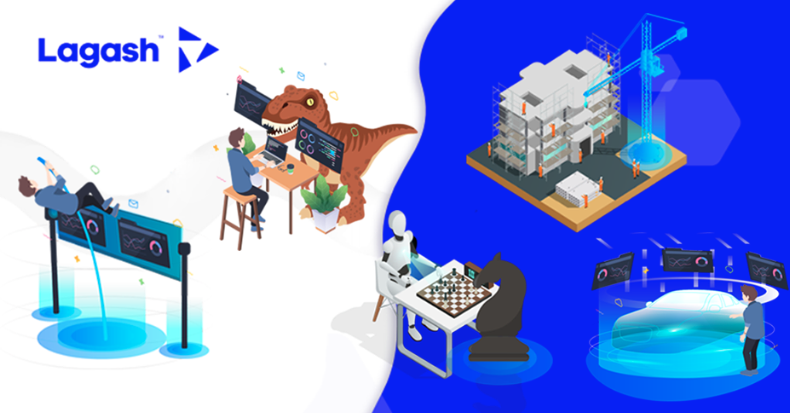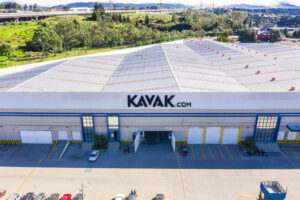
Por Jacob Atkins
October 17, 2019
Contxto – As of today, Lagash may not be a household name, despite having developed software for companies like Microsoft, Walmart and Heineken. Seeing its 50 percent yearly growth rate since 2001, now it’s hoping to increase its U.S. presence.
Headquartered in Buenos Aires, today Lagash employs over 500 people in Colombia, Chile and Mexico. Due to its former partnership with Microsoft, it also has offices in Boston, Massachusetts and Redmond, Washington.
Based on recent coverage from Nearshore Americas, the “unpredictability of the Argentine economy” has motivated Lagash to seriously pursue growth opportunities elsewhere.
“We are under an expansion plan that started two years ago in which our focus is mainly getting the operation not to depend that much on Argentina or Latin America,” said Chief Strategy Officer Javier Arguello to Nearshore Americas.
“Because Latin America is not in good shape. Our plan is to grow operations in the United States and work with more stable and hard currency, compared to pesos in Latin America.”
According to Arguello, this will involve developing more delivery centers, strategic hiring of professionals, plus streamlining modern software development practices.
While a U.S. expansion is reportedly the next logical step, no timeline is currently available.

From the beginning, Lagash has developed affordable and agile software solutions for partners. To accomplish this, it has even sent Lagash teams to work at other companies. During the early 2000s, it collaborated with Microsoft to expedite software development and implement new technology in the market.
“At that time, there was a tech shift in the way people build app software, so we started working with Microsoft to speed-up software development,” said Arguello. “That’s essentially how we came to be in the States.”
Gradually, Lagash even started working with Fortune 500 companies and big-name banking institutions such as Santander and Citibank. Despite the economic uncertainty lingering over Argentina, the company has still managed to retain its strong export-based business model.
“Our business has an export root from Argentina and this year was no exception,” said CEO Federico García to iProfesional. “While the 2019 scenario influences our local operation, throughout our history, we managed to maintain independence and autonomy that allows us to focus our day-to-day efforts with our clients.”
Following the legislation of Argentina’s Knowledge Economy Law in May, García hopes that the mandate will ease ongoing financial tension. At the same rate, he believes the bill has the potential to increase exports for the company.
“The best thing that can happen is that the measures set forth in the Knowledge Economy Law are fulfilled and intensified,” said García, stressing that the regulatory framework affects every industry in both the private and public sectors.
“It is important to promote these activities because they have the dynamic potential to transversally increase productivity, quantity and quality of employment and exports.”
Officially starting in January 2020, Argentina’s novel Knowledge Economy Law will expand upon the former Software Law. The premise is to stimulate more investments in the tech sector, as well as create jobs and increase tech exports.
Benefits will reportedly range from reduced labor costs, fewer limitations for company creations, plus export incentives for “intellectual” sectors. Some of these include computer science, AI, aerospace, nanotechnology, biotechnology, geology, audiovisual, among others.
On top of developing and exporting software, Lagash also manages training programs to prepare students for the industry. Reportedly running mostly out of Mendoza, the startup cooperates with both government agencies and educational institutes in this effort.
Although numerous developers live in Argentina, it can be challenging to hire them due to economic troubles, according to Arguello.
“From a cost perspective, there is an opportunity because the salaried people are based on Argentine pesos and not yet dollars. If we charge our customers in dollars, we can pay our staff in pesos and there is a huge gap we can leverage.”
All the while, creating more software and growing the company are all part of the end-of-year agenda. According to the CEO, this will involve applying growth efforts to the Knowledge Economy Law. Through the framework, the startup intends to generate new revenue, develop new software, and attract fresh talent.
“Argentina has a huge opportunity. At Lagash, we are committed to training new talent in our country,” said García. “We will continue to train young people in all our centers in Mendoza, Misiones, Entre Rios and Buenos Aires.”
-JA

Por Yanin Alfaro
February 17, 2026

Por Israel Pantaleón
February 17, 2026

Por Stiven Cartagena
February 13, 2026